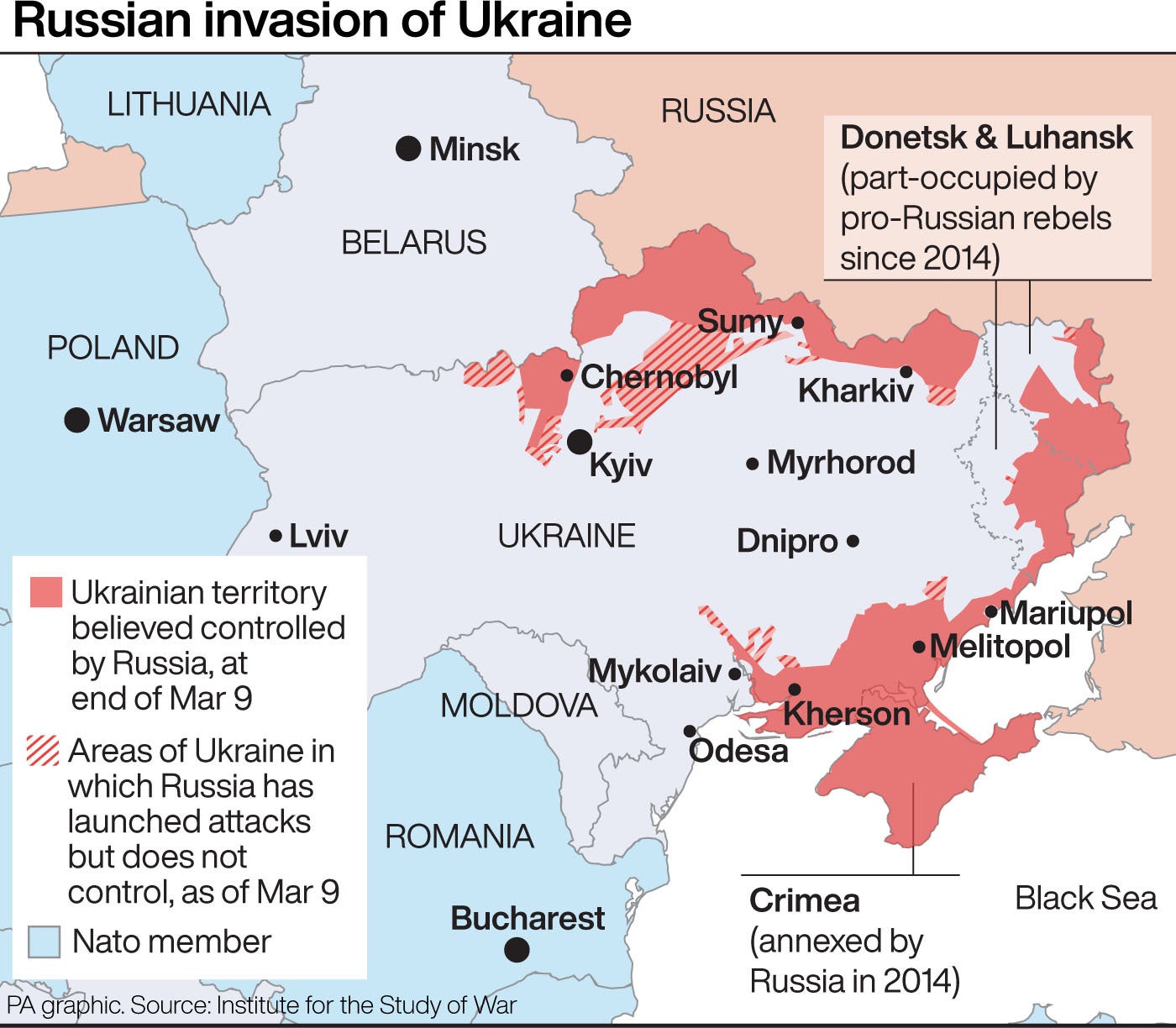Ukraine: West must be ready to join war if Russia uses chemical weapons, Tony Blair’s ex-chief aide says
Jonathan Powell warns repeat of show of weakness after chemical attack in Syria will be ‘catastrophic appeasement’
Your support helps us to tell the story
From reproductive rights to climate change to Big Tech, The Independent is on the ground when the story is developing. Whether it's investigating the financials of Elon Musk's pro-Trump PAC or producing our latest documentary, 'The A Word', which shines a light on the American women fighting for reproductive rights, we know how important it is to parse out the facts from the messaging.
At such a critical moment in US history, we need reporters on the ground. Your donation allows us to keep sending journalists to speak to both sides of the story.
The Independent is trusted by Americans across the entire political spectrum. And unlike many other quality news outlets, we choose not to lock Americans out of our reporting and analysis with paywalls. We believe quality journalism should be available to everyone, paid for by those who can afford it.
Your support makes all the difference.The West must be ready to join the war in Ukraine if Russia uses chemical or nuclear weapons, Tony Blair’s former chief of staff says.
Jonathan Powell became the first senior figure to warn that failing to respond robustly after a chemical attack – as happened with Assad’s regime in Syria in 2012 – would be “catastrophic appeasement”.
No 10 has played down prospects of a military response, even as fears mount that Vladimir Putin will use the weapons, stressing that Boris Johnson considers Nato to be a “defensive alliance”.
But Mr Powell said a show of weakness could leave the West in “a worse situation” of having to join the fighting later on.
Referring back to Assad’s use of chemical weapons “with Russian support”, Mr Blair’s key adviser for 10 years said: “We said we were going to act and then we didn’t act.
“I think that would be catastrophic in terms of appeasement to Putin and ending up in a situation where he’ll keep taking further action. So, I think we need to be clear about what our red lines are.”
Mr Powell stressed he supports “not getting dragged into the third world war” at present, arguing Putin should be offered “a way out” in the peace talks.
But he added: “If he crosses one of these red lines – a tactical nuclear weapon, or chemical weapons – I think we should think very seriously indeed if that is a red line for us and we’re going to act.
“Because, otherwise, we simply get escalation and more escalation, have him attack other countries and then we are going to have to deal with it when we’re in a worse situation,” he told BBC Radio 4.
The US and UK have said they are “seriously concerned” that Putin will resort to chemical or biological warfare in Ukraine, amid the slow progress of the invasion he launched two weeks ago.
False claims by Moscow of a US-funded biological weapons programme in Ukraine is seen as a “false flag”, designed to pave the way for chemical attacks.

In the US, Liz Truss echoed the fears about chemical weapon use, but ducked questions about whether that would be “a red line” for the UK.
Asked about the UK response, the foreign secretary replied by saying: “That would be a grave mistake on the part of Russia adding to the great mistakes are already being made.”
Ms Truss also declined to be drawn on how the UK will make its planned delivery of anti-aircraft missiles, given Nato opposition to a no fly zone.
She said the UK is “working with our allies and partners”, telling CNN: “We have been very effective at getting missiles to the Ukrainians.”
James Heappey, the armed forces minister, said a chemical attack should trigger “an international response”, without saying what that might be.

Join our commenting forum
Join thought-provoking conversations, follow other Independent readers and see their replies
Comments